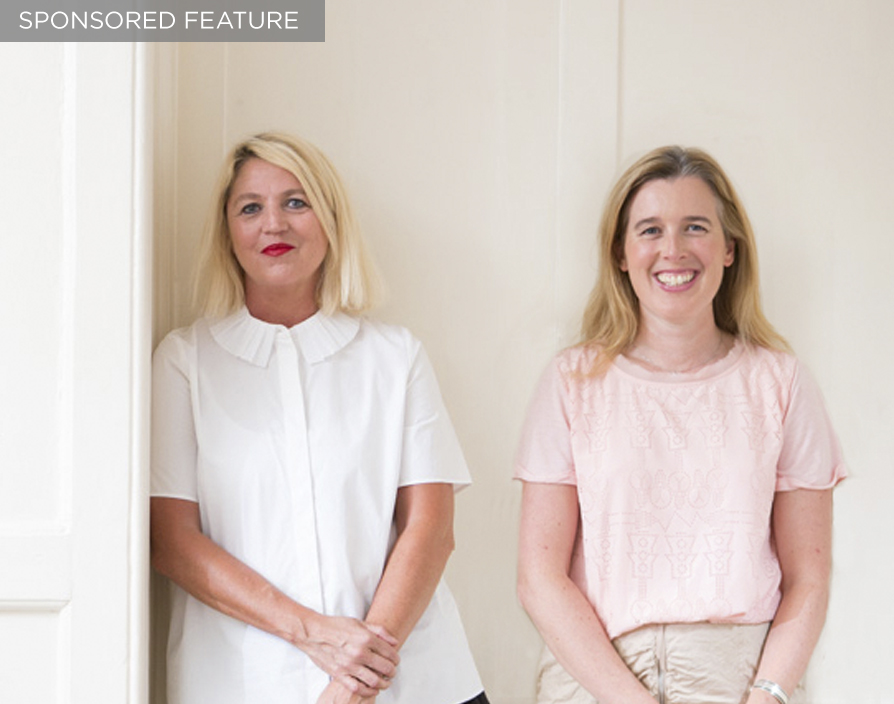A self-described “educational technologist”, Kerstyn Comley boasts a background in both engineering and education, a career cocktail that led to her co-founding a secondary school in 2010. Having met her co-founder Suzi Godson four years ago at a trampolining class their daughters were attending, they hit it off. “Suzi is a journalist and renowned expert in sex and relationships,” says Comley. “For many years she felt that there was a need to make it easier for young people to ask awkward or very personal questions about sex and relationships.” With Godson believing digital communication could provide the answer, Comley admits she “leapt at the chance” to make it happen and the foundation for MeeTwo was laid.
Careful not to run before they could walk though, it was a considered process they put in place in order to flesh things out. “We started slowly – we needed to get to know each other as well as the idea,” recalls Comley. Essential to getting the ball rolling was user research – lots of it. They spoke with young people, parents and teachers before the first service was even developed to make sure they were truly going to produce a platform of value – and it was a wise decision. “We found that young people loved the idea but wanted to be able to talk about all aspects of their wellbeing and mental health, not just sex and relationships,” adds Comley.
With those all-important insights, MeeTwo was enhanced to incorporate many other topics and offer support accordingly. From friendships and family conflicts to school stress, the service gives users a chance to share their troubles. “We see lots of discussion about depression and anxiety as well as gender and sexuality,” says Comley. “Interestingly, although the media often points the finger at social media as the cause of the decline in youth mental health, social media is rarely discussed.”
Prior to the arrival of MeeTwo, the options for teenagers to discuss matters would have been with friends, parents and schools, or perhaps charities and the NHS, depending on the support required. This was problematic, however. “Many young people don’t want to share their most personal worries with their friends for fear of embarrassment or because they don’t want to be a burden,” reasons Comley. And in the case of adults getting involved, she notes young people will generally feel like they’ve lost control of the issue when that happens. “So, often a young person will bottle up their worries until it reaches crisis point. MeeTwo gives that young person the opportunity to practice what it feels like to open up, often for the first time.” After they’ve used the service, users generally go on to seek further help if necessary, or determine whether it’s something they can resolve themselves.
Dubbed a safe social media solution, Comley and Godson were both aware of the lax safety features offered on existing social networks and they were keen to avoid falling into that trap. “It’s encouraging that even [from] operating over the past four years we have seen young people become more knowledgeable about staying safe online,” says Comley. “However, any person who is struggling with mental health issues, especially a child, is incredibly vulnerable to misinformation and manipulation and that’s why we take our approach to safety very seriously.”
Given that prioritisation of safety and security, Comley’s additional post as secondary school governor and voluntary teacher provides her a “unique opportunity” to understand youngsters. “I get to see their side of the story as well as understand more about some of the root causes of the stress factors young people must deal with,” she says. As such, all comments across MeeTwo are moderated to prevent anything untoward or negative being posted. “Moderation is at the core of our value proposition and when we compare it to the closest similar services such as listening services or one-to-one online counselling, we can demonstrate it is much less expensive,” Comley details. And although all moderation is done manually at present, machine learning experiments have taken place with success to test the water.
Building on that theme of similar services, any initial thoughts the co-founders may have had about rivals went out the window. “Most of the providers who might be seen as competitors, such as Childline and Kooth, have become close collaborators,” says Comley. “We recognise that we’re all simply trying to help anxious teenagers. However, there is no one who is offering fully moderated, guided peer support in the way that we do.” While the likes of Childline has been around for decades and is well-established, MeeTwo has plenty of room to scale and, outside of some social media advertising and work with schools, growth has largely been organic. “As Suzi often comments, this venture drags us along – we don’t need to push it,” continues Comley. “Every time we run a campaign or get some press coverage we see substantial demand. It’s really important to us that we can properly support every young person who uses MeeTwo.”
To that end, MeeTwo is free for young people to use. But in terms of getting a business model in place, the service is supported by the DigitalHealth.London Accelerator, which is helping the startup prepare an offer to the NHS. “We also have really exciting plans to use our technology to support other groups such as parents, young adults and teachers,” reveals Comley. “All of these products would have a subscription model.” In addition to that, MeeTwo generates revenue as a seller of resources. October, for example, saw the MeeTwo Mental Help Handbook launched to support the wellbeing of teenagers. With Kickstarter used to print and dispatch the first 1,000 copies, the business is in search of a sponsor to issue a further 6,000. “This handbook is the first publication to combine the voices of young people and the opinions of experts with a completely holistic directory of ways that young people can help themselves,” she explains, adding the goal is to have a copy in each school in the UK.
While collaborations have been forged with like-minded charities and incubators, MeeTwo has also teamed with London & Partners to harness its Business Growth Programme. “In January, Suzi won the Technopreneur Award at the House of Lords,” says Comley. “One of the Account Managers from London & Partners was at the event and encouraged us to apply.” Reflecting on her highlights from working with the scheme, the co-founders received mentoring and took part in a leadership workshop, which Comley says she still refers to. “As founders we’ve grown in confidence and it’s really useful to be made aware of the many things that you didn’t realise you didn’t know,” she adds.
Since launching in 2015, it’s really been over the past 12 months MeeTwo has surged. “It’s been like being on a high speed train,” Comley opines. Although there were just two founders this time last year, there’s now a team of 11 staff in place. “Our ambition over the next three years is to raise £1m so that we can support 500,000 [people] and [start] looking at international expansion,” Comley concludes. “We will represent British social enterprise at the next world fair in Dubai Expo 2020, it’s a good milestone to keep our eyes on.” ![]()
This article comes courtesy of London & Partners’ Business Growth Programme. Tailored to your business growth ambitions, the programme offers free impartial business advice and support to SMEs looking to grow across London.
Share via:


















































